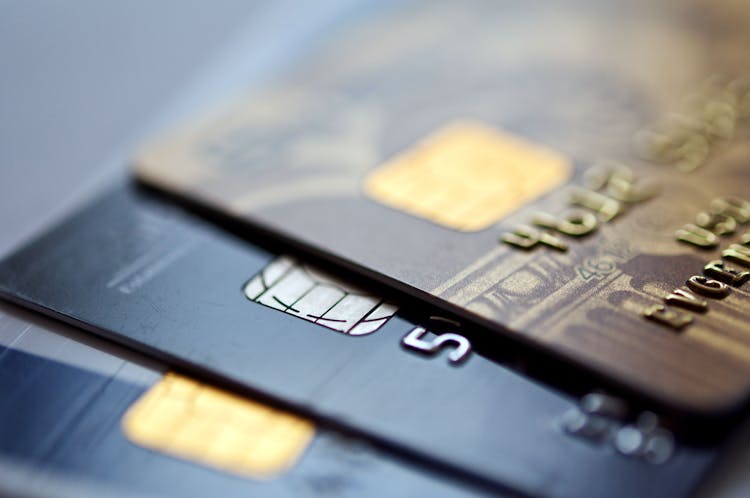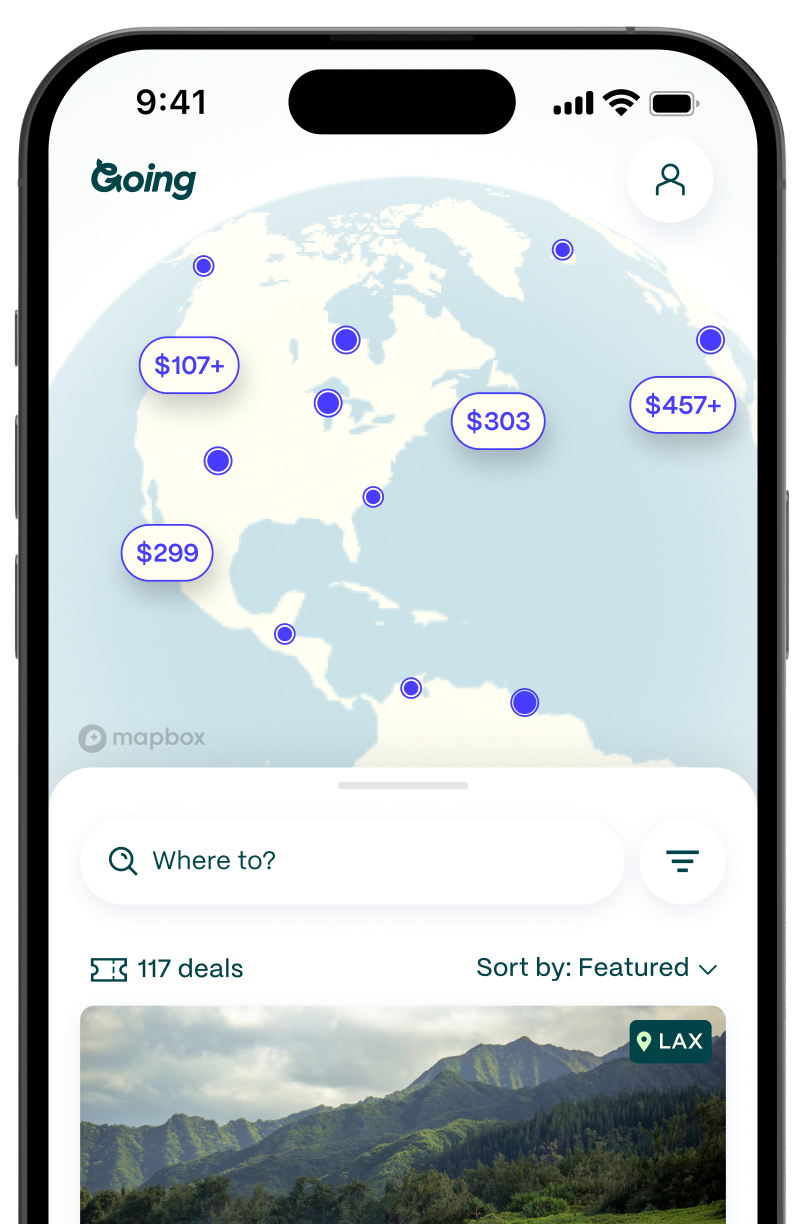
Should You Get a Business Credit Card for Travel Rewards?
Going has partnered with CardRatings for our coverage of credit card products. Going and CardRatings may receive a commission from card issuers. Opinions, reviews, analyses, and recommendations are the author's alone, and have not been reviewed, endorsed, or approved by any of these entities. Some of all of the card offers that appear on this page are from advertisers; compensation may affect how and where the cards appear on the site; and Going does not include all card companies are all available card offers.
Table of Contents
I had a side gig for years before I ever applied for a business credit card. When I first began freelance writing for extra income to supplement my full-time job at the time, I had never given business credit cards much thought, assuming you needed an LLC or corporation to qualify.
It was only once I took an interest in earning travel rewards that I realized there was a whole big world of business credit cards. I realized these would enable me to double the points I earned by signing up for both business and personal credit cards, plus establish my business credit history and even occasionally allow me to pay back large purchases over time by signing up for business cards with 0% annual percentage rate (APR) offers.
In this article, we’ll discuss why a business credit card might be right for you even if you don’t own a “traditional” business like an LLC or you don’t have a brick-and-mortar business location.
Who qualifies for a business card?
All types of business owners are eligible to apply for a business credit card. You do not need a storefront, employees, or a huge annual business revenue in order to be eligible.
The application will require you to select what type of business you own. Available answer choices usually include: sole proprietorship, corporation, limited liability company (LLC), non-profit, or partnership.
But don't let this legalese jargon intimidate you: If you're not sure you are eligible, here's a closer look at common types of businesses that might qualify as self-employed:
Gig workers
Many types of side gigs in which a service is provided fall under the sole proprietor category, thus qualifying you for a business credit card.
Freelancers and contractors
If you do any freelance work (writing and photography are just two examples), contract or consulting work, or gig work like dog walking, babysitting, ride-share app driving, or tutoring, you can be considered a sole proprietor.
Self-employed business owners
Someone who is self-employed sets their own hours and works for themselves instead of an employer. You could be self-employed and sell merchandise or services to a network of clients. crafts or reselling your kid’s old clothes and toys could also be considered sole proprietary businesses.
Other application questions
The application will ask when your business was established and about your annual business revenue, but you are not typically required to provide any tax statements or financial documents. If you have just opened this business and don’t have any revenue to list on the application, you can put $0. What matters most is that you are truthful.
If this is your first business card with the bank issuing the card, and you’ve selected any type of business categorization besides sole proprietorship, you might be requested to confirm your address (verbally, by phone) or provide proof of your address, like sending the bank a utility bill in your business’ name.

What are the advantages of a business card?
Build business credit
If you think someday you’re going to need a large loan or line of credit for your business, it is helpful to establish your business credit history with a business credit card.
Improve your short-term cash flow
Some cards may have promotional 0% introductory APRs. If you need to carry a balance, this can be a smart way to do so and not pay high interest rates. However, you should not rely on business credit cards to help with long-term cash flow issues.
Little impact to your personal credit score
While your personal credit history is checked during your application, once you have the business card, your monthly spending and balances will not be reported to the consumer credit bureaus—Experian, Equifax, or TransUnion.
Your personal score might be reduced temporarily from the hard inquiry when your credit is checked, but there’s typically no further impact. Most business credit cards (there are a few exceptions) do not count toward Chase 5/24 status, a rule that limits you to five new credit cards in 24 months in order to get approved for cards from Chase.
Separate your business and personal expenses
Separating your expenses is crucial if you make a lot of business purchases. When it comes to tax time, if you’ve used a business card to separate your expenses, you won’t have to spend long hours scouring your personal statements to determine which expenses were for your business and which ones were personal.
Higher credit limit
Because businesses often have higher spending needs than consumers, the credit limits on business credit cards tend to be higher than on personal cards. The credit limit on your first business card may not be high, but once you’ve used the card responsibly for a while, you can request (or may be automatically granted) a credit line increase. And future business cards you get will likely have increased limits once your business credit history is established.
Add employee cards
If you are a business owner who has employees who work for you and do some spending for your company, you can typically add employee cards to your account. This can be helpful in reaching a minimum spending requirement or even just earning rewards and cash back beyond the welcome bonus.
Employee cards, some interchangeably called “authorized users,” are often free to add to your account, although there are some instances where it can incur a fee, such as The Business Platinum Card from American Express, which charges a $350 annual fee per employee Business Platinum card (however, you can add employee Business Green cards for no fee).
Just remember, even though it is a business card, you, as the main account holder, can be held personally liable for paying back all charges.
What are the travel benefits of a business card?
More lucrative welcome offers
Business credit cards from the major issuers frequently have higher welcome offers than their personal card counterparts. Take, for example, the Chase Ink Preferred with its 100,000-point bonus versus the Chase Sapphire Preferred with its 60,000-point welcome bonus.
Ability to get more cards and earn more bonuses
Since you can get both the personal and business versions of a card, you could earn welcome bonuses for each, earning even more points or miles in one bank’s points currency. Additionally, a business card won’t count towards your number of cards for banks that have restrictions on how many new cards you can open in a certain amount of time (ahem: 5/24 rule).
Points earning can be geared towards business expenses
Just like personal cards, there are a variety of cards with different types of rewards available. Some cards earn a fixed amount of points for every purchase, like 2x on all purchases, while other cards offer bonus points for spending in specific categories, like dining, shopping, or travel.
While there’s some overlap with category bonuses on personal cards, some business cards do offer more business-oriented categories, like the American Business Gold Card from American Express, which offers up to 4x points on categories including advertising (online, TV, radio) and select technology providers of computer hardware, software, and cloud solutions.
Want to earn points for travel? There are co-branded airline and hotel business credit cards, which earn points or miles with that specific loyalty program, such as United MileagePlus and Hilton Honors. Then there are flexible travel rewards business cards like ones earning Chase Ultimate Rewards, Amex Membership Rewards, and Capital One miles. With the flexible cards, you can transfer your points or miles to airline and hotel programs, or you can redeem through the bank’s travel portal for flights, hotels, and rental cars.
Even if you don’t want to redeem rewards for travel, many cards offer other options, such as gift cards or receiving cash back as a statement credit.
Lounge access
Some of the premium business credit cards, such as the Amex Business Platinum and the Capital One Venture X Business Credit Card, offer unlimited lounge access to more than 1,000 lounges around the world through the Priority Pass and Plaza Premium benefits. Plus, they also offer access to their branded lounges, the Amex Centurion Lounge and Capital One Lounge, respectively.
Travel insurance protections
Many business credit cards offer the same or similar travel protections as personal cards, like trip delay, trip cancellation, baggage delay, lost luggage, and car rental insurance. Benefits vary by card, so be sure to review the benefits before applying to make sure the card has the coverage you want.
What are the disadvantages of a business card?
Higher minimum spending requirements to earn welcome bonuses
To go along with those higher welcome offers for business cards, many also have higher minimum spending requirements compared to personal credit cards.
High annual fees
Potential to accumulate debt and pay high-interest
If your business is having cash flow issues, it can be tempting to use your credit card to “float” expenses and only make the minimum payment when the bill is due. You should make every attempt to use your business credit card responsibly, as not paying the bill in full each month can result in paying high-interest rates.
Types of business credit cards for travel rewards
Business cards, just like businesses, come in all shapes and sizes. If you're just starting out, there are several no-annual-fee or low-annual fee cards that offer great rewards and perks with relatively low spending requirements.
Examples include:
Some business cards are geared toward businesses that spend thousands each month. Speaking generally, these cards tend to come with higher annual fees, but also offer more perks and higher welcome offers.
Examples include:
Credit card type | Annual fee | Earning rate |
|---|---|---|
card_name | annual_fees (See Rates and Fees) |
|
card_name | annual_fees (See Rates and Fees) |
|
card_name | annual_fees |
|
card_name | annual_fees |
|
card_name | annual_fees (See Rates and Fees) |
|
So, should you get a business credit card?
A business card may be right for you if:
- You want to build a credit history for your business
- You have employees you want to add as users to your account
- You want a bigger welcome bonus—and can meet the higher minimum spend to earn it
- You want to add another card without adding to your personal credit history
- You need a higher line of credit for business expenses
- You want to easily separate your business and personal expenses
A business card may not be right for you if:
- You’re not going to make the minimum spending to earn the welcome bonus
- You don’t want to pay the high annual fee, won’t use enough of the benefits to justify the fee, or already have another card that offers similar benefits
- You’re worried the higher limit might result in accumulating debt
Ready to get a business card? Here's our list of the best business cards for travel rewards.
Bottom line
Business credit cards can be extremely useful to business owners of all types. Whether you have a small business where you’re the owner and only employee or a large business with lots of employees, you can utilize business cards as a smart spending tool to help you with short-term financing by using introductory low APR offers, or you can earn rewards from your business spending to use for travel or cash back.
Remember to be honest with yourself about your business needs, and don’t use business credit cards as an excuse to overspend. You can get those great perks without going into debt for them.
Going has partnered with CardRatings for our coverage of credit card products. Going and CardRatings may receive a commission from card issuers. Opinions, reviews, analyses, and recommendations are the author's alone, and have not been reviewed, endorsed, or approved by any of these entities. Some of all of the card offers that appear on this page are from advertisers; compensation may affect how and where the cards appear on the site; and Going does not include all card companies are all available card offers.
See Rates and Fees for the card_name
See Rates and Fees for the card_name
See Rates and Fees for the card_name
Published October 10, 2023
Last updated April 4, 2024









